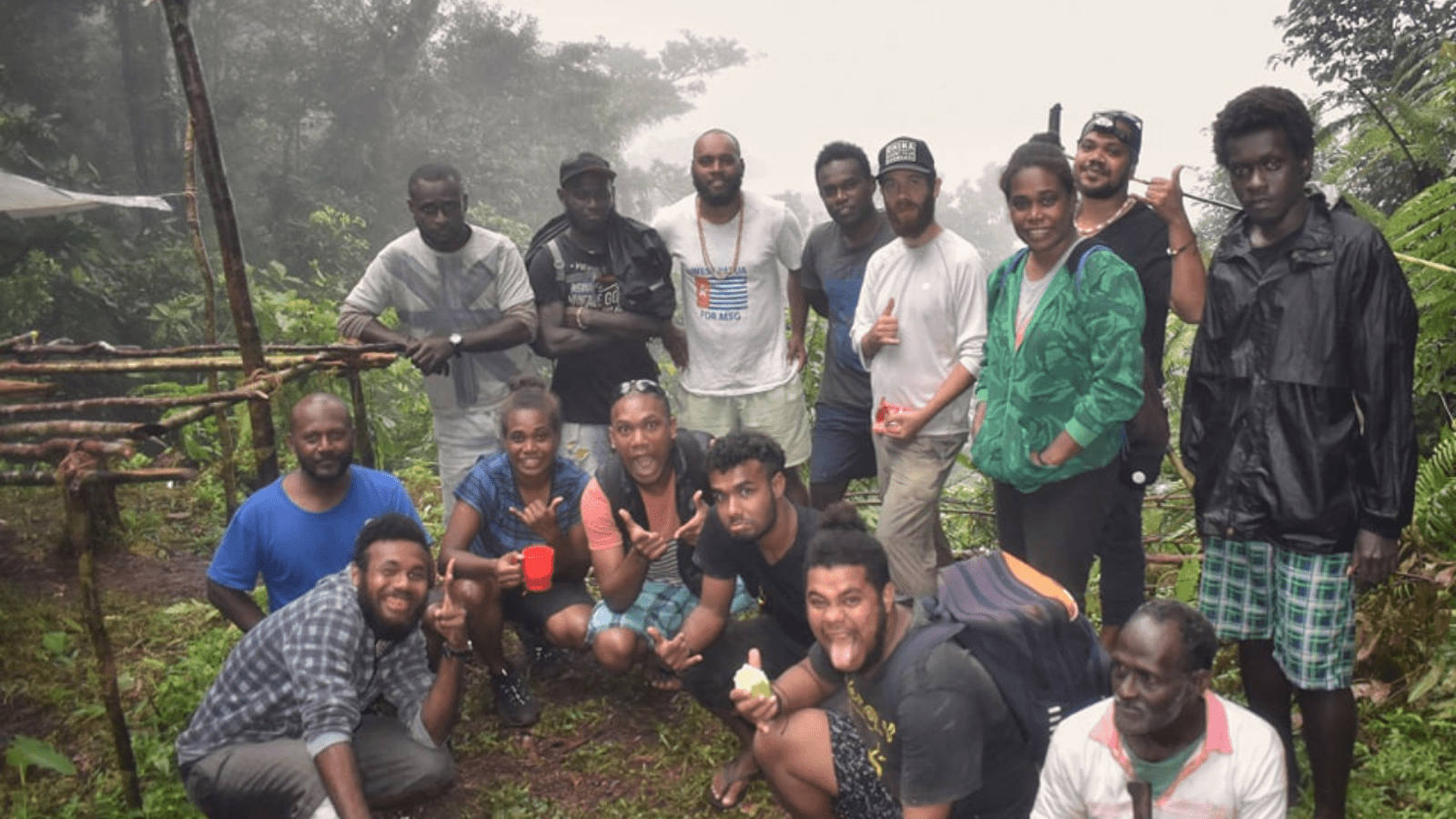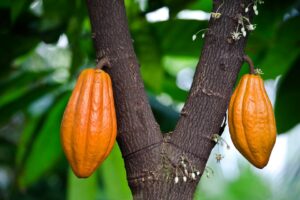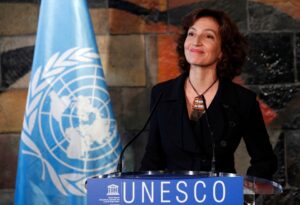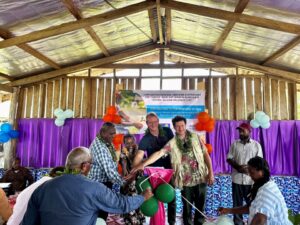BY Jeremy Gwao
February 11, 2022
Indigenous people in Solomon Islands —a small island nation located in the Pacific— have played a special role as guardians of forests and protected ecosystems, even in the face of harmful activities. Covid-19, however, now threatens them with a new challenge: financial aid.
International aid for indigenous communities was severely affected by the pandemic, explained Edgar Pollard, chairman of the Mai-Maasina Green Belt, an organization that contributes to conservation initiatives in the Malaita province, the country’s most populous island.
This association has worked in environmental education for local communities since 2015, but faced important challenges during the pandemic, said Pollard. Almost 90% of their income comes from international donors, which implemented cuts during the pandemic, he added.
The organization works to empower indigenous communities. “It’s good that local people are slowly taking ownership of their land and being the guardian of their sacred spaces where they lived,” Pollard added.
Basically, these communities’ projects will stagnate without support, Pollard said. “Many people will lose interest and commitment if there is no action or activity taking place” in environmental conservation, Pollard further explained.
Like the Mai-Maasina Green Belt Association, other environmental organizations working with indigenous people were financially affected by the Covid-19 pandemic. This left indigenous communities at risk and created difficulties to carry on conservation efforts.
The Solomon Islands’ Office of Environment and Conservation Division was also affected financially by Covid-19, and had to cancel as much as half of the planned projects for 2021, said Frederick Dotho, senior officer at this department.
Most of the communities or project sites in the country today are now facing low cash flow within their community, Dotho said. The budget is currently redirected towards the Covid-19 pandemic, which is one of the main challenges for rural communities, he added.

Most of the groups are associations that rely much on fundraising or self-support. Some of them have even disappeared, Dotho said, leaving their role vacant in protected areas.
This is seen as the biggest threat for conservation work in the Solomon Islands, experts said. For example, Makira Islands in Baoro Highlands had six sites identified as conservation areas. Now, according to Dotho, the government identified three of the sites where locals are engaging in logging.
According to government officials working in natural conservation, most of the public budget had to be diverted to attending the pandemic. According to the Ministry of Environment, Climate Change, Disaster Management and Meteorology Finance Controller, Jacob Akao, costs related to the pandemic —such as equipment, training and quarantine toiletries— amounted to 32 Million SBD in 2021 and around 32 Million Dollar SBD in 2020.
Ultimately the decision to protect or preserve their land and natural resources does not need any NGO, Pollard said. “But without any alternative activities, resource owners will be at higher risk to succumb to exploitative industries such as logging”.
Money for nature
“The main challenge during this Covid-19 is budget,” said Frederick Dotho, Senior Conservation officer. According to him, the budgets of the past two years have been insufficient to carry on the expected conservation projects.
The department of Management and Meteorology (MECCDMM) was one of the most affected by the divestment of money to attend the Covid-19 pandemic, said Dotho. This has limited the early warning systems for extreme weather events, he said.
“The Conservation department is ensuring that all our 2021 plans are set and we manage to complete half of the work planned, but some are yet to be done. Since we only have less budget, we will push it to 2022,” Dotho adds.

Meanwhile, Dr.Melchior Mataki, Permanent Secretary for the Ministry of Environment Climate Change Disaster and Meteorology said in a statement that “the Government of Solomon Islands took an important step to develop a system of protected areas or areas where special measures need to be taken to conserve biological diversity.”
In that same statement it highlights that the environmental sector received only 1.39% out of 4.86 billion dollars allocated for the development budget from 2016 to 2020.
“Covid19 gives us the opportunity to reevaluate that keeping nature is very important,” says Edward Hounimarara, secretary for the Maasina Green Belt Movement. Indigenous people around the world are especially effective in keeping natural landscapes, studies show.
“We provide training and field trips for these local (indigenous) rangers and give them hands-on exchange of learning, which I believe will expand the capacity of our members to know more during this covid19 period,” Edward said.

Communities under Covid-19 pressure
Until recently, the Solomon Islands hadn’t yet reported any major Covid-19 outbreaks. The country now faces its first major wave of Covid-19, reporting between 100 and 300 daily cases. In the event of a more massive outbreak, indigenous people seem to be in the most peril, said Pollard.
To face any major outbreaks, the Mai Masina Green Belt is working to equip indigenous rangers and community members with proper information about the coronavirus, he added.
In spite of this, their efforts have faced barriers. The association is actually losing international donors, who would usually finance their work in the indigenous communities of Solomon Islands. Currently, the Mai Maasina Association only has two donors left, according to their directors.
Ahetaha Water Conservation Association —which is also part of Mai Masina Green Belt—
Also reported a lack of funds to properly help communities, said Edward Kaikau Huitarau, the director of the organization.
With whatever small funds they have, they will ensure that people or landowners of the conserved areas can protect these areas, both Pollard and Huitarau said.
Nia Tero, a Global NGO that also supports the indigenous communities in Solomon Islands, also reported financial impacts from the Covid-19 crisis. This has obstructed some projects such as their “indigenous guardians”, in which local filmmakers and storytellers tell the story of how they protect their ecosystems.
Daniel Lin, Storytelling Lead at Nia Tero said the organization “believes in the movement that is happening in the Solomon Islands by people and communities who are working to protect their territory from being destroyed by logging and mining pressures.” The Covid19 will seemingly be the biggest threat to the indigenous people once any possible outbreak occurs soon, said Pollard.
This could also lead to impacts in natural conservation, as indigenous communities serve important roles as protectors of forests. “People will surely lose sight of the conservation and follow the pathway of keeping the measure that was given for the Covid-19,” he added.
“Many people will use lands for disputes,” he said.
Franklin Fiuta, a 27-year-old indigenous man from Malaita Province, is one of the people involved in protecting local ecosystems. He said the community is planning for eventual Covid-19 outbreaks in a way that they can keep protecting nature.
Firuta is one of the locals who keep the Padezaka Tribal Rainforest Conservation Area under vigilance. This protected area covers more than 4,800 hectares of rainforests, the largest conservation area in Solomon Islands.
Now, Franklin is preparing for new pressures on the forest, with less presence from authorities and conservation organizations.




